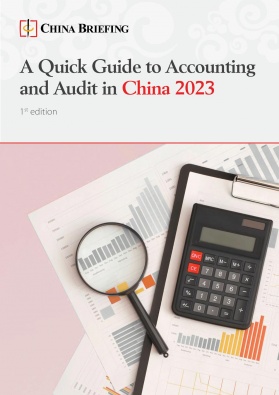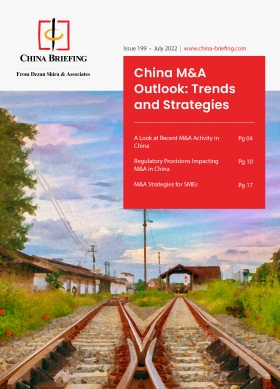US Securities Body Gains Full Access to Audit Records for US-Listed Chinese Firms
US regulators have gained unfettered access to the audit documentation of public accounting firms headquartered in mainland China and Hong Kong for the first time in history, marking the first major step to resolving a long-standing impasse on how to audit Chinese companies that are listed on US stock exchanges. The announcement from the US supervisory body may prevent Chinese company delistings from US stock exchanges and marks a breakthrough for audit and oversight cooperation between China and the US.
The US Public Company Accounting Oversight Board (PCAOB) has successfully gained access to the audit records of Chinese companies listed in the US, potentially saving hundreds of Chinese companies from forced delisting from US stock exchanges.
In its announcement, released on Thursday, December 15, the PCAOB said it had successfully gained uncensored access to investigate audit firms in mainland China and Hong Kong for the first time in history.
The PCAOB is responsible for overseeing the audits of public companies in the US in order to ensure compliance with securities regulations. According to the board’s fact sheet, it currently inspects and investigates registered public accounting firms in more than 50 jurisdictions around the world.
According to the board’s announcement, it had determined that it “was able to secure complete access to inspect and investigate audit firms”. A fact sheet released by the board reveals that these audit firms are KPMG Huazhen LLP, headquartered in mainland China, and PricewaterhouseCoopers (PwC), headquartered in Hong Kong. These accounting firms service mainland Chinese and Hong Kong firms listed in the US.
The determination comes after more than 30 PCAOB staff spent nine weeks from September to November conducting on-site inspections and investigations in Hong Kong, which included reviewing “thousands of pages of audit documentation”. The board said it was able to do this “without any interference or input from PRC authorities”, and that the Chinese authorities provided the inspectors access to all audit documentation and other information that they requested “without withholding or redacting any information”.
The news has been welcomed by officials in both China and the US and is a major step toward overcoming a long-standing impasse between US and Chinese securities regulators on how to supervise US-listed Chinese companies. An official from the China Securities Regulatory Commission (CSRC) said in a media Q&A that the regulator “welcomes the PCAOB’s decision” and “look[s] forward to […] establishing long-term and sustainable cooperation arrangements that will enhance the stability and predictability of international regulatory environment and better protect global investors”.
Meanwhile, the PCAOB Chair Erica Y. Williams said in a statement that this development “is a recognition that, for the first time in history, we are able to perform full and thorough inspections and investigations to root out potential problems and hold firms accountable to fix them.”
Why are Chinese companies facing delisting?
On December 2, 2021, the US Securities and Exchange Commission (SEC) adopted amendments to “finalize the rule implementing the submission and disclosure requirements in the Holding Foreign Companies Accountable Act (HFCAA)”, according to an SEC press release published at the time.
The law, which was first passed in December 2020, allows the SEC to ban a foreign company from trading and delist the company from an exchange in the US if the US Public Company Accounting Oversight Board (PCAOB) is not able to audit its requested reports for three consecutive years.
The US requires all companies listed on US stock exchanges to submit to audits by the PCAOB. However, Chinese law prohibits companies from disclosing potentially “sensitive information” to the PCAOB on the grounds of national security. This left US-listed Chinese companies stuck between a rock and a hard place of competing legislation.
Following the adoption of this amendment, the SEC has continued to maintain a list of US-listed Chinese companies that it has determined cannot be adequately inspected or investigated by the PCAOB. These companies faced possible delisting as a result of the PCAOB’s lack of access to audit documents. As of December 13, 2022, the list had reached 173 companies, including industry giants, such as Alibaba, Baidu, JD.com, Weibo, and Sinopec.
An agreement between the SEC and Chinese regulators to enable US regulators to access the audit documents was finally reached on August 26, 2022. After the agreement was announced, the PCAOB Chair Erica Y. Williams stated: “On paper the agreement signed today [by the PCAOB, the CSRC, and China’s Ministry of Finance (MOF)] grants the PCAOB complete access to the audit work papers, audit personnel, and other information we need to inspect and investigate any firm we choose”.
The new announcement from the PCAOB indicates that the August agreement was upheld.
The PCAOB fact sheet outlines three criteria that were used to determine whether it was able to gain “complete access” to the audit documentation over the course of the nine-week inspection period:
- The PCAOB had sole discretion to select the firms, audit engagements, and potential violations it inspects and investigates without interference from Chinese authorities;
- The PCAOB inspectors and investigators were able to view complete audit work papers with all information included and to retain information as needed; an
- The PCAOB had direct access to interview and take testimony from all personnel associated with the audits the PCAOB inspects or investigates.
The results of the PCAOB’s investigation determined that all of the above criteria were met.
What does this mean for Chinese companies listed in the US?
The latest developments do not mean that the companies on the SEC’s list are no longer in danger of delisting; it only means they will not be delisted under the HFCAA due to a failure to enable audits for three consecutive years. Without this latest breakthrough, many of the companies identified were facing blanket delisting in 2024.
Companies still have to comply with SEC rules on US-listed companies, and if the results of the company audits that can now go ahead show violations of these rules, the companies are still liable for the corresponding penalties. As Williams put in her statement, “Today’s announcement should not be misconstrued in any way as a clean bill of health for firms in mainland China and Hong Kong.”
In addition, the final inspection report has not yet been released, with Williams saying that it would be released “as soon as possible in the new year”. This report will include any “quality control deficiencies” that its staff have identified during the inspections and investigations.
The fact sheet states that such deficiencies will be subject to further investigations and potential sanctions “as with any other oversight activities”.
The PCAOB stated that its staff had already identified potential deficiencies, but that these deficiencies are “consistent with the types and number of findings the PCAOB has encountered in other first-time inspections around the world”.
Williams also stressed that this investigation was only the beginning of the board’s audit and supervisory work. “I want to be clear: this is the beginning of our work to inspect and investigate firms in China, not the end. The PCAOB is continuing to demand complete access in mainland China and Hong Kong moving forward. Our teams are already making plans to resume regular inspections in early 2023 and beyond, as well as continuing to pursue investigations.”
About Us
China Briefing is written and produced by Dezan Shira & Associates. The practice assists foreign investors into China and has done so since 1992 through offices in Beijing, Tianjin, Dalian, Qingdao, Shanghai, Hangzhou, Ningbo, Suzhou, Guangzhou, Dongguan, Zhongshan, Shenzhen, and Hong Kong. Please contact the firm for assistance in China at china@dezshira.com.
Dezan Shira & Associates has offices in Vietnam, Indonesia, Singapore, United States, Germany, Italy, India, and Russia, in addition to our trade research facilities along the Belt & Road Initiative. We also have partner firms assisting foreign investors in The Philippines, Malaysia, Thailand, Bangladesh.
- Previous Article From Zero-COVID to Living with COVID – What the Pivot Means for Businesses in China
- Next Article China to Regulate Deep Synthesis (Deepfake) Technology Starting 2023







